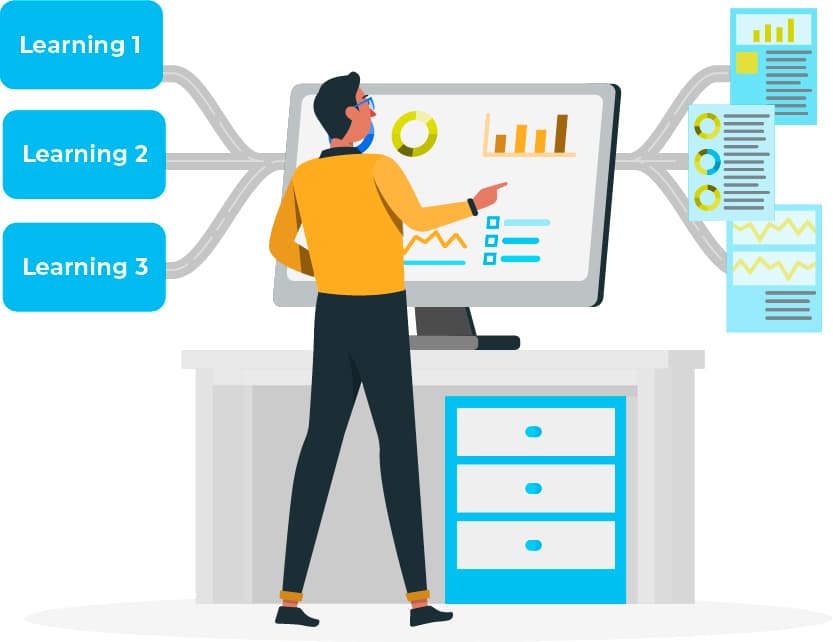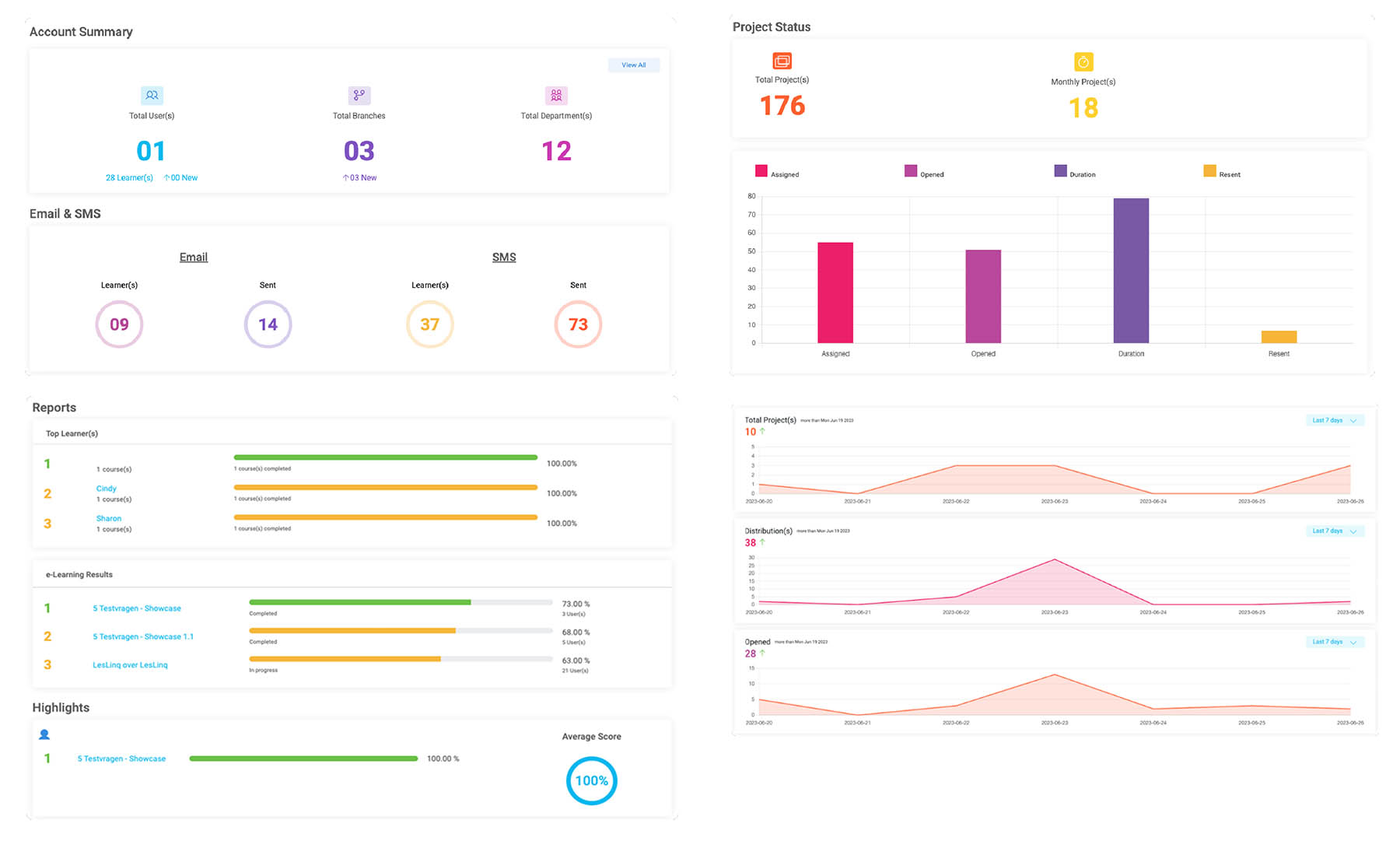
E-learning and microlearning have gained immense popularity as more people worldwide opt for online learning. However, assessing the effectiveness of e-learning or microlearning programs can be challenging. Measuring learning outcomes plays a crucial role in determining the success of your learning initiatives. In this article, we will explore the significance of collecting the right data in e-learning and microlearning and how LesLinq handles this process.
Understanding Learning Outcomes and Measurement
Every e-learning or microlearning program usually has a specific learning objective, defining what participants should know, understand, or be able to do upon completing the course. Learning outcomes measure whether learners have achieved these objectives after completing the learning experience. It is essential that learning outcomes be concrete and measurable to accurately evaluate the effectiveness of the learning process.
Examples of relevant learning objectives in microlearning or e-learning include:
- Knowledge acquisition: Gaining specific factual information or conceptual knowledge about a particular topic, such as understanding the basics of a software program or learning workplace safety regulations.
- Skills training: Developing practical skills or technical proficiency, like using new software, performing specific manufacturing operations, or applying customer service skills.
- Problem-solving: Learning strategies and techniques to solve problems and address challenges, such as analyzing data, troubleshooting technical issues, or managing workplace conflicts.
- Behavior change: Promoting desired behavioral changes, such as improving communication skills, fostering inclusiveness and diversity, or encouraging ethical behavior.
- Awareness and compliance: Increasing awareness and understanding of regulations, procedures, and guidelines, such as data privacy rules, safety regulations, or environmental awareness.
- Leadership development: Developing leadership skills and competencies, including effective communication, teamwork, and leadership principles.
- Product knowledge: Acquiring in-depth knowledge about a product or service, such as understanding its features, benefits, specifications, or being able to address customer queries.
The Power of Data
User data serves as crucial indicators to assess the success of your e-learning or microlearning programs. By collecting and analyzing user data, you can determine the effectiveness of your initiatives and identify areas for improvement. The key lies in collecting and capturing the right data.
Collecting the Appropriate Data
Collecting the right data and strategically applying data analysis allows you to:
- Objectively evaluate and understand the strengths and weaknesses of the learning process.
Identify problem areas, such as microlearning bottlenecks causing difficulties. - Take targeted actions to improve learning outcomes.
- Customize microlearning to suit individual needs and learning styles, enabling personalized learning experiences.
What Data Does LesLinq Collect for Measuring Learning Outcomes?
By collecting and analyzing relevant data, you gain insights into the learning process and can make informed improvements. At LesLinq, we understand the power of data. The process of capturing user data begins when users are invited via SMS or email to engage in microlearning.
We capture the following information:
- Number of microlearnings created and shared
- Proof of SMS delivery
- Microlearning module openings
- Duration of engagement with the microlearning content
- Monitoring of learner engagement with microlearning at different levels (project status: opened, incomplete, complete)
- Analyzing project distribution and engagement data across various timeframes (weekly, monthly, lifetime, or custom dates)
- Tracking top-performing learners
- Tracking the most effective Microlearning content

Valuable User Data for Insight
With our Question Module, you have the flexibility to insert questions at any point within the microlearning module, not only as a final assessment but also in between, such as after a theory segment or video. This enables you to ask control questions early in the process and make adjustments based on the answers. We also record data from the question module, including:
- Creation of questions
- Correct or incorrect answers
- Number of question retries
- Time taken to answer each question
- Whether the final score meets the desired success threshold
We can even automate the awarding of certificates upon achieving a satisfactory score. Through xAPI, we can link this data to your HR system or LMS.
But that’s not all. We can also track user behavior by monitoring button clicks, which we refer to as “progress buttons.” Although these do not contribute to passing scores, they provide insights into user behavior. Through xAPI, we can link the collected data with your HR system or LMS. LesLinq captures, stores, and tracks a wealth of user data. Fascinating, isn’t it?
Conclusion
Measuring learning outcomes is crucial for evaluating and enhancing the effectiveness of e-learning programs. Collecting the right data plays a pivotal role in this process. By collecting the appropriate data, you can objectively evaluate the learning process, enable personalized learning experiences, identify issues, and make informed decisions. LesLinq captures a wealth of user data that you can utilize to optimize learning outcomes in e-learning and microlearning. This data can be linked to your HR system or LMS via xAPI.
More information?
If you’d like to learn more, contact Chris Hof at 0682 077 845 or send us an email. Would you like to see more of our new solution? Schedule an appointment for a demo.
